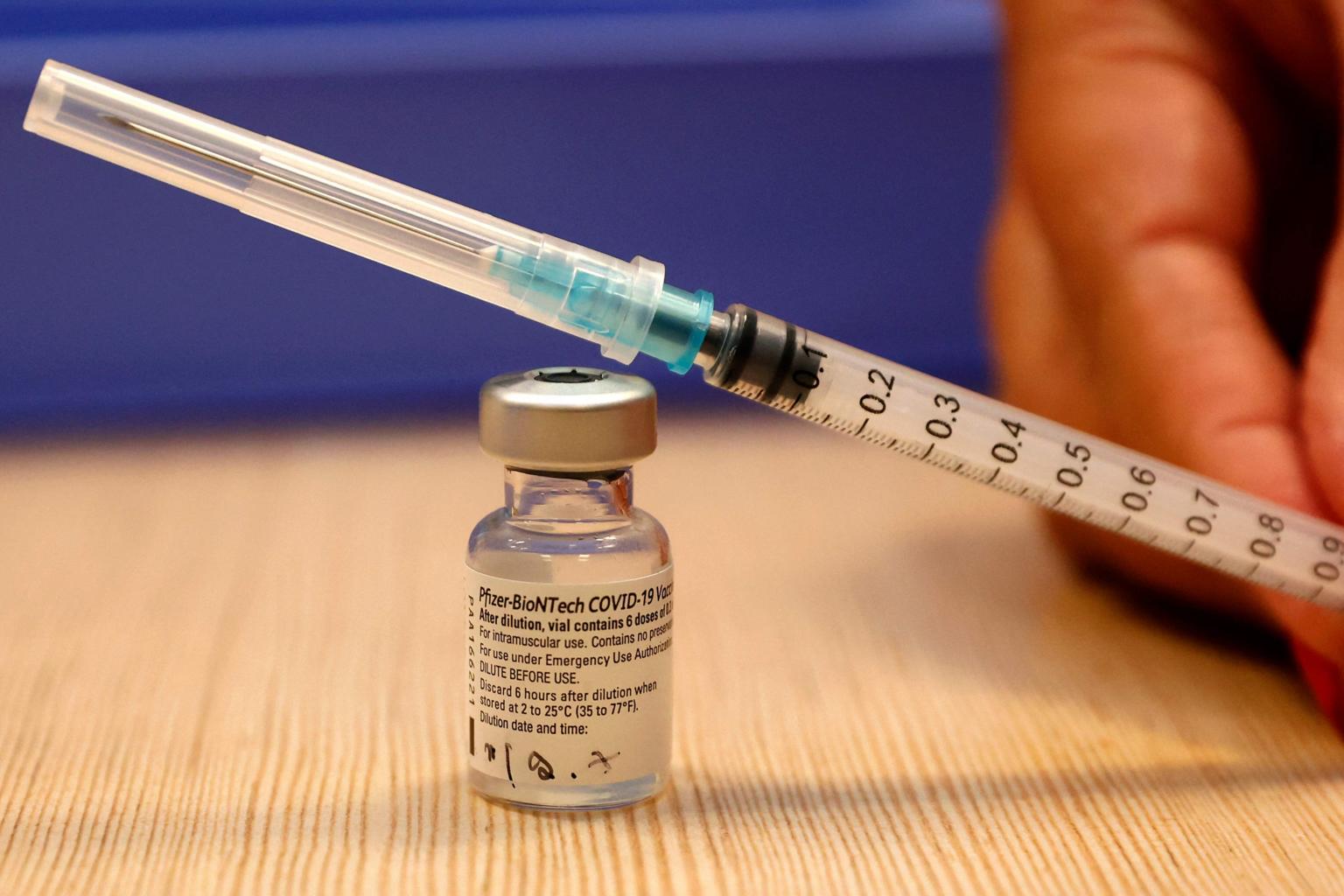Pfizer's Covid-19 vaccine shields against severe illness, less effective in halting infections: Israel's health ministry
Sign up now: Get ST's newsletters delivered to your inbox

BioNTech, which developed the shot with Pfizer, is conducting an ongoing review of study data on the vaccine.
PHOTO: AFP
TEL AVIV (BLOOMBERG) - Pfizer's Covid-19 vaccine provided a strong shield against hospitalisation and more severe disease in cases caused by the contagious Delta variant in Israel in recent weeks, even though it was just 39 per cent effective in preventing infections, according to the country's health ministry.
The vaccine, developed with BioNTech, provided 88 per cent protection against hospitalisation and 91.4 per cent against severe illness for an unspecified number of people studied between June 20 and last Saturday (July 17), according to a report on Thursday from the health ministry.
The report said that the data could be skewed because of different ways of testing vaccinated groups of people versus those who had not been inoculated.
Still, the data are likely to fuel debate over whether booster shots should be given to people who've already been vaccinated - something Pfizer has said it plans to request in the US.
Israeli authorities said earlier this month they'll only give a third round of shots to people with weakened immune systems.
The data out of Israel, which had earlier access to vaccines than most anywhere else in the world, contrast with an earlier study, in the New England Journal of Medicine, which found that two doses of the Pfizer-BioNTech vaccine offer 88 per cent protection against symptomatic disease caused by the Delta variant, compared with 94 per cent against the Alpha variant that was first discovered in Britain.
Public Health England also previously found that the Pfizer and BioNTech shot was 96 per cent effective against hospitalisation.
Pfizer and BioNTech are confident in the protection and safety of the two-dose vaccine, Pfizer said in a statement on Friday. BioNTech is conducting an ongoing review of study data on the vaccine, a spokeswoman said.
Analysis of the companies' more than 43,000-person clinical trial shows that effectiveness against symptomatic infection dips over time, from 95 per cent in the first two months to the low- to mid-80 per cent range four to six months after the second dose, Pfizer said.
The Delta variant first emerged in India and is spreading around the globe as governments race to inoculate people, sometimes infecting those already fully vaccinated against Covid-19.
The mutation has forced some countries to delay or rethink plans to loosen curbs on businesses, activity and travel.
Israel has had one of the world's most effective inoculation drives, with 57 per cent of the population fully vaccinated, but has seen a recent surge in infections due to the Delta variant. Critical cases have also climbed, but remain a fraction of the peak earlier this year.
Prime Minister Naftali Bennett has urged vaccine holdouts - who number some 1.1 million people - to get inoculated, calling it the most effective way to defeat the Delta-variant strain.
The government has also reinstated some restrictions for indoor events and plans to ban flights to several countries with rising infection rates, including Britain and Cyprus.


